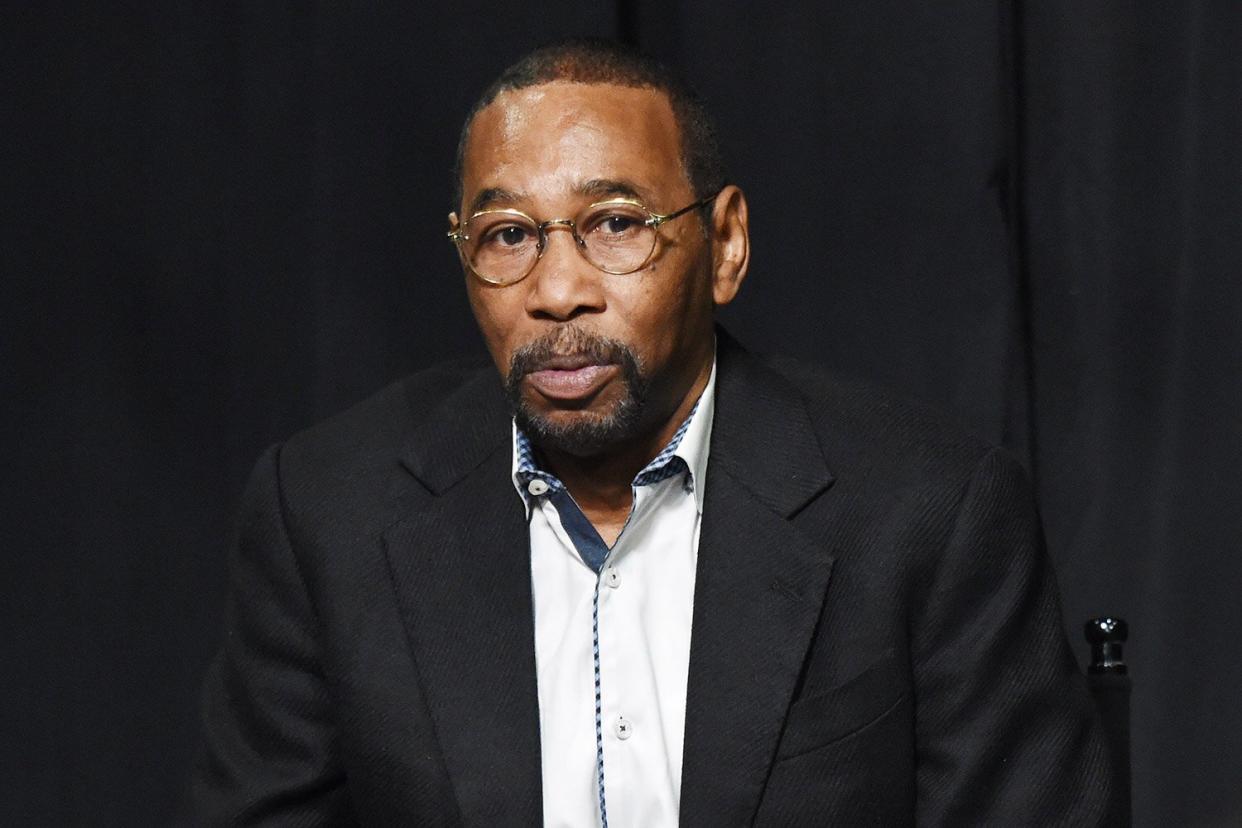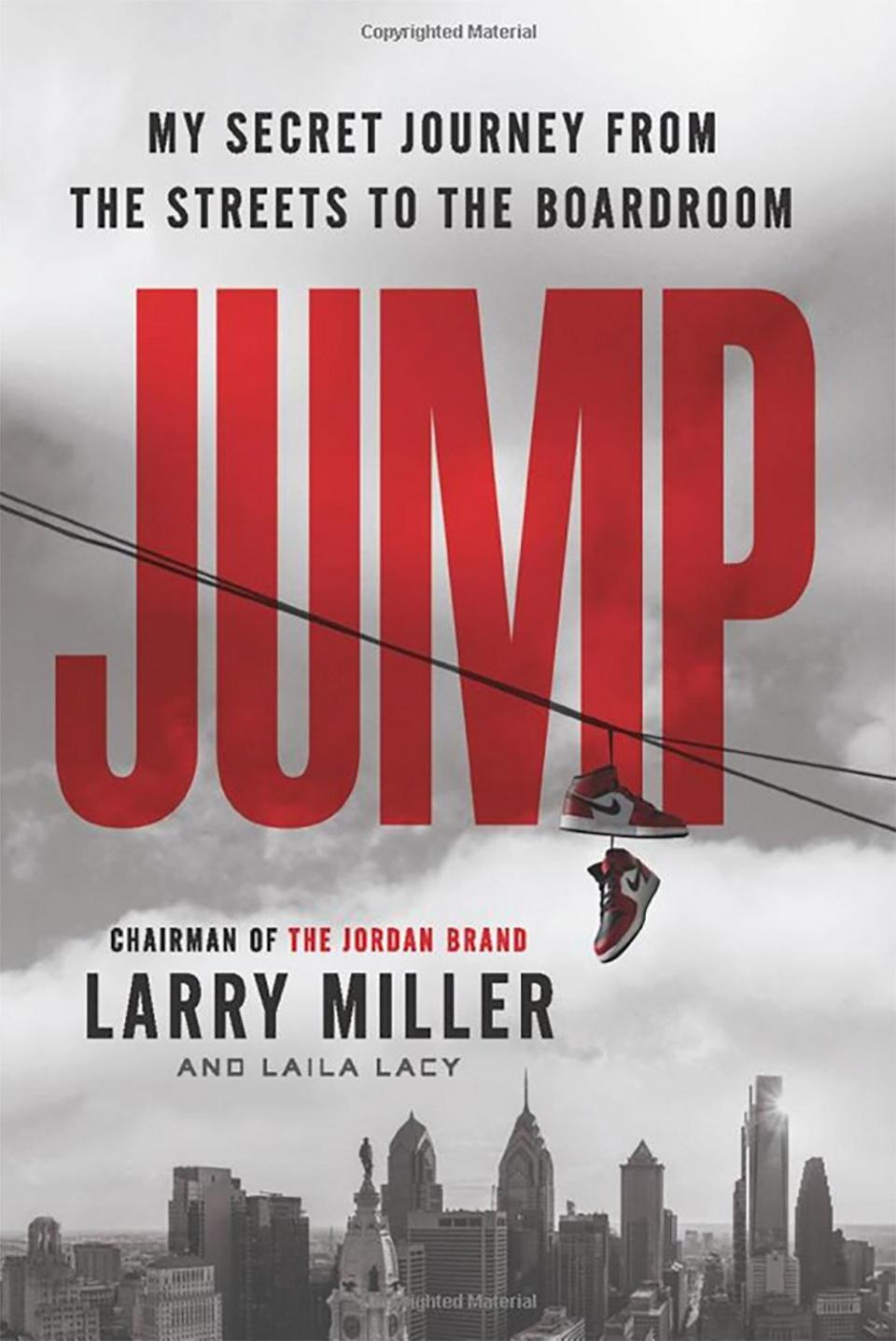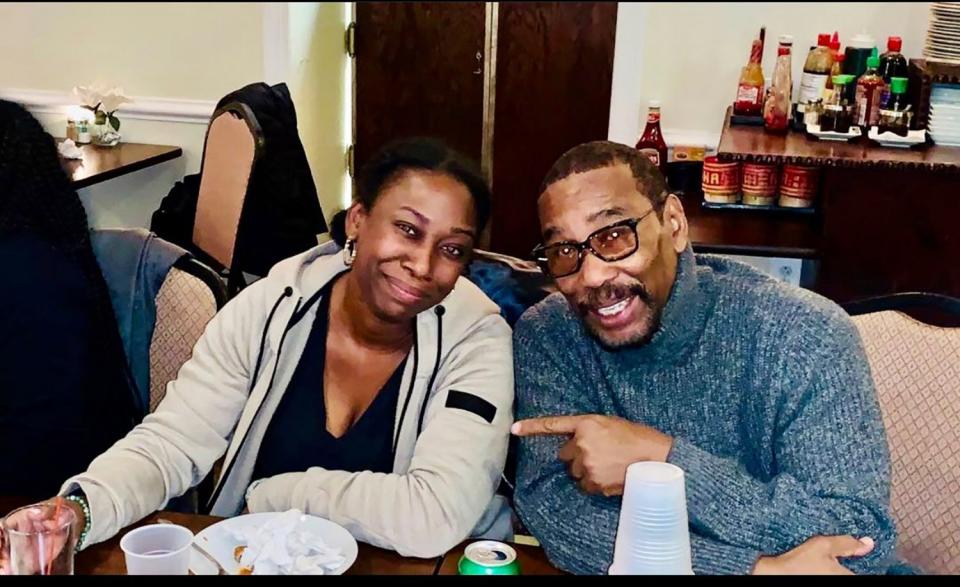Nike Exec Larry Miller Says 'Burden' of Hiding Incarceration for Murder Was 'Lifted' in Writing New Book

- Oops!Something went wrong.Please try again later.
Adam Pantozzi/getty Larry Miller
For nearly six decades, Larry Miller's business colleagues and even closest confidants had no idea of the life he once led. That all changed in 2021 when he decided to reveal in a Sports Illustrated interview that as a teen in 1965 he shot and killed another teenager in Philadelphia: 18-year-old soon-to-be father of two Edward David White.
Miller, the longtime head of the Michael Jordan brand for Nike, served time in a juvenile detention facility for the crime and was planning never to speak publicly of it. Now, he's recounting his life's experiences and decisions in an upcoming memoir, Jump. He co-wrote the book with his daughter Laila Lacy, and he tells PEOPLE she pushed him to come clean in hopes it will inspire others to change their lives.
"My daughter, she started working on me about this probably 13, 15 years ago and I kept saying, 'No, not going to do it, not going to do it,' " explains Miller, 72. "But finally, the more I started to have these nightmares and migraines, it was just like, 'You know what, I got to get this out.' ... I kind of felt like a burden was lifted as I was sharing more and getting more out."
He and Lacy spent hours just talking about his life as she recorded his answers to all her questions. Lacy would then go back and painstakingly transcribe their discussions, which inspired yet more questions. It was "challenging" for both of them, Miller says, noting that sometimes she'd need a break to just "digest" what he'd shared.
"Having her as the person I was talking to and sharing all this with kind of made it a little bit easier," says Miller. "Because I felt like, 'Hey, she's going to love me regardless.' You know what I mean?"
Miller was 16 at the time he killed White, and he'd undergone a shift from "teacher's pet" to someone focused on impressing people "in the street." His family, he says, never wavered in support even as his priorities warped. He doesn't blame anyone but himself for the decision to join the Cedar Avenue Gang in West Philadelphia, which eventually resulted in Miller shooting White with .38-caliber handgun and leaving the diner employee to die in the street.
After serving more than four years for the murder, Miller was later incarcerated for armed robbery at the since-closed State Correctional Institution in Graterford. It was there that Miller made another decision — this time, to pursue an education through a prison program. "Once I got into it, I really started to believe that maybe I really can change my life through this process," he recounts. "Maybe this is not just a way to get out of jail, but actually a way to really change my life and do something positive and constructive going forward."
By age 30, Miller earned an accounting degree from Philadelphia's Temple University. As he recounts in his book and to Sports Illustrated, he began his professional career by disclosing his incarceration record, only to be met with closed doors. He ultimately made the decision to hide his record from future employers, though he maintains he never lied in the pursuit of a job.
Miller's career with Nike began in 1997. He worked as vice president of Nike Basketball before becoming the Jordan Brand president in 1999. He left the company in 2007 to serve as the Portland Trail Blazers' president but returned to the Jordan Brand in 2012.
RELATED: Michael Jordan Reflects on Late Father James 27 Years After His Killing: 'He Was My Rock'
Telling Nike co-founder Phil Knight and Jordan specifically about his past was a new challenge ahead of Jump's release, but Miller says he was met with support.
"The reality is if either of them had been, 'Yeah, well, maybe you shouldn't do this,' I probably would've been reluctant to [write the book], but both were extremely supportive," he tells PEOPLE. "Both said, 'Hey, this is a story that needs to be told. You need to share this story. It can inspire some people, it can motivate some people.' "
There have been some less welcoming responses, though — including from the family of White, who spoke to the New York Times not long after Miller's Sports Illustrated interview. White's family expressed their frustration that the victim is not named in Jump and that Miller didn't reach out to them before the publication of that October interview or during the book writing process.

courtesy Larry Miller/nike Jump
Willie Gray, a 79-year-old family friend of the Whites, told the Times of Miller: "If he wanted to be truly redeeming, before he set pen to paper he would have reached out to the remaining members of the family and let them know how bad he felt and asked, 'Can you find it in your hearts to forgive me?' "
When asked about the White family's response, Miller says he's "expressed my total sorrow and remorse for what happened" in both the book and interviews, and he wishes he could "go back and undo it."
"I'm sorry that we didn't — we weren't able to connect with them before this became public," he tells PEOPLE. "I wanted to meet with them and knew I needed to, but I was nervous and anxious about it. We had started to try to connect with them and locate them and the New York Times kind of beat us to it."
RELATED: Nike Announces $40 Million Commitment in Support of the Black Community
He claims his own nerves about the interaction caused him not to "push" the search to find the White family. "I definitely am sorry that we didn't have some contact with them before this became public. But my hope is that we can work together to memorialize Mr. White and make sure that his name lives on and that there's some way of recognizing him into the future and I'm hoping that we can work with the family to make that happen," Miller says.

courtesy Larry Miller/nike Larry Miller and his daughter Laila Lacy
Miller's overall hope is that with his story he can"potentially change the perception of formerly incarcerated people and how people view and give opportunities to the formerly incarcerated.
The executive, a father of three and stepfather to one, feels he embodies that idea that people should not necessarily be tied to the darkest chapters of their history. "Just because this person did this in their past," he says, "doesn't mean that they don't deserve an opportunity to try to change their life."
Never miss a story — sign up for PEOPLE's free daily newsletter to stay up-to-date on the best of what PEOPLE has to offer, from juicy celebrity news to compelling human interest stories.
He thinks that can be done, in part, with increased access to education programs for prisoners, which he and his daughter and co-author hope to help champion.
"Our goal in this was to really create something that could motivate people, inspire people," Miller tells PEOPLE. "That's the spirit in which we did it and the hope is that it would be received in that spirit."
Jump, published by Harper Collins, will be released on Tuesday.

